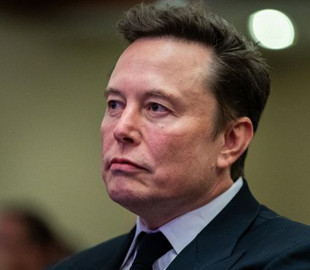
A new twist is brewing in the world of social media: according to sources, the Chinese authorities are discussing the possibility of selling the American division of TikTok to Elon Musk. This step could radically change the popular platform if the deal goes through.
RBK-Ukraine (Styler project) tells what scenarios await the social network after a possible deal.
Content moderation
Eliminating restrictions
Musk calls himself a supporter of “absolute freedom of speech,” which could lead to a significant overhaul of TikTok's current content moderation rules. This can lead to an increase in the amount of disinformation, hate speech, graphic content and other potentially harmful materials.
Staff reduction
By analogy with the mass layoffs in (X) Twitter, TikTok may reduce content moderation teams, which will only increase the spread of unwanted content.
Focus on context over removal
Musk advocates adding explanations or labels to controversial content instead of removing it. This approach could be implemented on TikTok and spark debates about what is considered harmful content.
Algorithm and Content Recommendations
Algorithm Transparency (possibly)
TikTok's algorithm remains closed and opaque, but Musk could introduce more openness into the process. This will allow users to understand how content ends up in recommendations on the “Recommendations” tab (For You).
Prioritizing certain types of content
The mask can change the algorithm to promote certain types of content – for example, longer videos, paid publications or posts from verified users (if a verification system is implemented). This could reduce the popularity of short videos, which are the basis of TikTok.
Changing engagement signals
TikTok's algorithm takes into account likes, comments, reposts, and watch time to personalize your feed. Musk may introduce new signals or change the weight of existing ones, which will lead to unpredictable changes in content recommendations.
Monetization and Revenue
Paid Verification and subscriptions
Following the X model (formerly Twitter), TikTok could introduce paid verification or subscriptions with access to premium features – such as increased content visibility, exclusive posts, or reduced advertising. This could create a two-tier system where non-subscribers would be at a disadvantage.
Changes in author support funds
Monetization programs for content creators could be revised: payout rates, participation criteria will change, and new revenue distribution models may appear.
Increased focus on commerce
Musk could increase the focus on TikTok’s shopping features, turning the platform into a more direct sales channel.
Data Privacy
Uncertainty over processing issues data
Musk has no clear position on data privacy, which raises concerns about changes to TikTok's data collection, storage, and use policies.
Increased transmission data
Given that Musk's other companies, such as Tesla and SpaceX, collect large amounts of data, there is a risk of increased data sharing between these companies and TikTok, which could exacerbate privacy concerns.
Corporate Culture and Operations
Mass layoffs and restructuring>60~/p>
As was the case with Twitter, Musk's purchase of TikTok could lead to significant staff cuts and restructuring of the company, which would affect its stability and development.
Changing corporate culture
Musk's management style is known for its demandingness and unconventional approach. This can lead to serious changes in the company's culture and affect employee morale and productivity.
Geopolitical implications
Reducing pressure from Western governments
The transfer of TikTok to Musk's hands could reduce the political pressure associated with the platform's Chinese ownership.
Increasing tensions with China
Depending on Musk's policies and public statements, the deal could exacerbate relations between the US and China.

